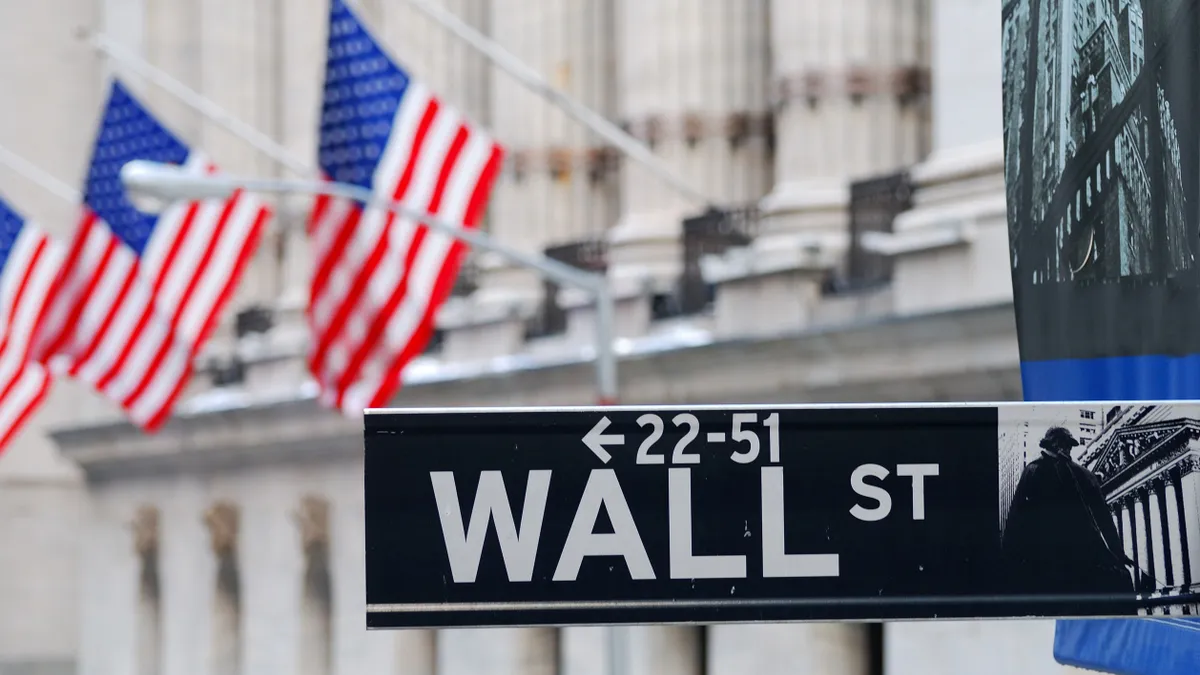Share prices of diagnostic companies tumbled Monday as investors digested the implications of the COVID-19 vaccine result shared by Pfizer and BioNTech.
The declines, which were led by a 28% drop in Quidel’s share price, reflect concerns that the vaccine efficacy data could tamp down on the multi-billion dollar testing boom created by the COVID-19 pandemic. Those stock hits came on a day when the Dow and S&P 500 had some of their best finishes in months.
Yet, diagnostic companies talked up the prospects of an ongoing coronavirus boost in the weeks leading up to the vaccine news. Execs are betting that screening will continue even as cases fall, and increases in the installed base of instruments will create new growth opportunities.
COVID-19 has fueled meteoric growth at companies that serve the coronavirus testing market. Third quarter sales at Quidel jumped 276%. Hologic grew global molecular diagnostic sales by more than 370%. Thermo Fisher Scientific generated $2 billion in COVID-19-related revenues in three months, largely due to demand for its proprietary PCR kits and other coronavirus testing products.
COVID-19 diagnostics makers, amid booming demand, have been vocal on future prospects for the sector
| Q3 performance | Comments on durability of testing demand | |
| Abbott | $881 million in coronavirus-related revenues | "With the vaccine, you might see a trend of a little bit of a decrease on the PCR testing, [and then] maybe an increase in antibody testing. But I think the rapid testing is not going to go away like that." -CEO Robert Ford, Oct. 21 |
| Hologic | Approximately 370% YOY rise in global molecular diagnostics revenues | "Effective vaccines will eventually slow testing demand, but even then, we believe that COVID testing will remain a large market, probably bigger than any other molecular category, for years to come." -CEO Steve MacMillan, Nov. 4 |
| Quidel | Revenues up 276% to $337 million, with $318 million coming from its coronavirus antigen test | "I think it’s the expectation that this is going to persist well beyond 2021; whether it’s 2022, 2023 — I couldn’t say at this stage. But at this point, it feels to me like this will not abate in terms of the level of tests required certainly until sometime in 2022 and beyond." -CEO Doug Bryant, Oct. 29 |
| Quest Diagnostics | Revenues up 43% amid huge coronavirus benefit | "We believe that molecular PCR testing will continue to play a very important role in diagnosing, tracking and tracing active COVID-19 infections and that there will eventually be a growing need for serology testing as vaccines and additional therapies come to the market." -CFO Mark Guinan, Oct. 22 |
| Thermo Fisher | $2 billion in coronavirus-related revenues | "In terms of durability, we believe that PCR testing is going to continue to be very relevant to our customers because it gives you the most accurate information ... we expect that those products are going to be relevant in 2021 because, unfortunately, the pandemic is still with us." -CEO Marc Casper, Oct. 21 |
The boom has covered a period in which the coronavirus has spread quickly across the U.S. and other major markets, driving up the number of infections and, by extension, the need for tests. Vaccines could slow the spread, thereby permanently reducing infections and limiting urgent demand for testing.
That prospect loomed large in the thinking of investors after Pfizer and BioNTech shared a late-phase efficacy result on their COVID-19 vaccine that far exceeded expectations, which bodes well for other vaccines which target the same coronavirus protein.
The prospect of a pharmacological fix for the pandemic triggered declines in the share price of companies exposed to the coronavirus test market, with the severity of the stock drops correlating to the extent to which their sales depend on the opportunity. Shares at Quidel closed down 28%, reflecting the fact that 79% of its third quarter revenues were related to COVID-19. Shares at the more diversified Abbott fell 4%. Falling between those extremes were Hologic (-9%), PerkinElmer (-9%), Thermo Fisher (-8%), Qiagen (-8%), LabCorp (-7%) and Quest Diagnostics (-5%).
Writing in a note to investors, analysts at William Blair said positive vaccine results were expected to put pressure on diagnostic stocks at some point. However, the analysts think the extent of the drops seen Monday may be excessive.
“We think there is likely to be an overreaction to the downside on these stocks today, as investors take the news as being an instant panacea and one that eliminates the need for any COVID-19 testing," the analysts wrote.
"While we think a vaccine is unequivocally positive and will hopefully end up reducing the number of COVID-19 cases (primarily as a result of decreasing symptomatic infections), we still believe there is a lot of testing that will need to be done in the future."
Multiple factors underpin the analyst comment. Firstly, it will be months before mass-vaccination programs start. Pfizer is still two weeks away from having the safety data needed to seek U.S. emergency use authorization and only expects to make enough vaccines to immunize 25 million people this year. As people need to take two doses weeks apart, it may be 2021 before even that small first cohort of vaccinations is complete.
Widespread uptake of prophylactics will be needed to bring COVID-19 cases down, something that is far from certain given vaccine hesitancy. Given the vaccines are highly unlikely to be 100% effective, people refusing to take prophylactics could prevent populations from achieving the herd immunity needed to drive cases down.
As such, the William Blair analysts expect testing in nursing homes, hospitals, cruise lines and other high-risk settings to continue for “a long, long time.” The prediction is in line with those made by companies including Hologic, Quidel and Thermo Fisher, all of which have predicted that demand for COVID-19 testing will continue into 2021 and potentially beyond.
At the same time, although a vaccine could decrease demand for certain coronavirus diagnostics, it could also make consumers feel more comfortable returning to seek routine testing, which would help the more traditional businesses at these companies.
It is also possible the availability of vaccines will spur increased demand for antibody testing, which has played a small role in the pandemic response to date. Antibody testing, as well as diagnostics that assess other aspects of the immune system, could be used to assess the duration of immunity to the coronavirus.
Roche Diagnostics CEO Thomas Schinecker expects that to happen, telling investors last month that “once vaccines will come to the market, antibody testing will become definitely a lot more relevant.” Abbott, LabCorp and Quest are among those also disseminating antibody testing options.

















